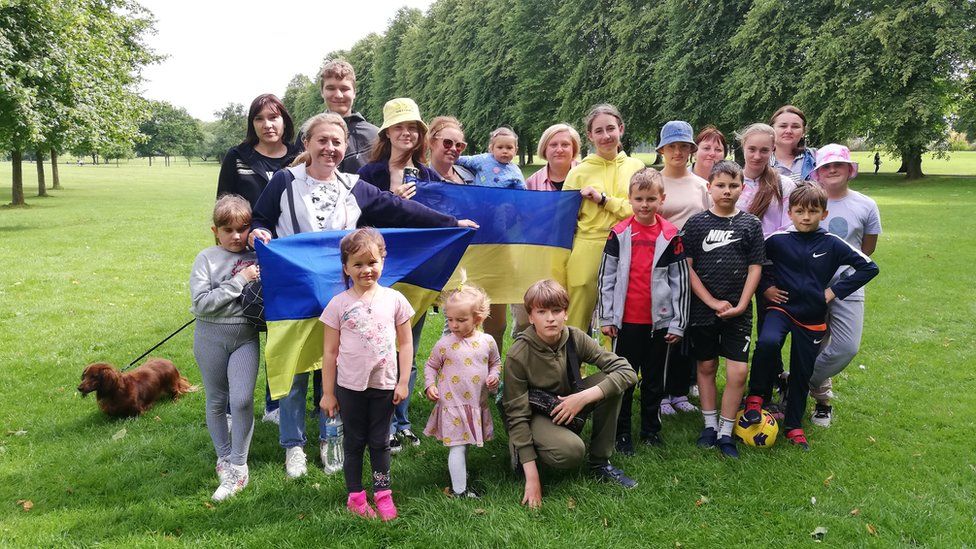Ukraine war: Refugees in Northern Ireland call for more language classes
- Published

A lack of English classes is a major obstacle for Ukrainian refugees integrating into Northern Ireland, a support group has warned.
The Ukrainians in Northern Ireland Community Group also said poor transport links and rising costs were a barrier for newcomers.
The group warned the conflict and its fallout was starting to be forgotten.
A woman who arrived in Northern Ireland three months ago said language was a huge issue.
"So many people don't understand or speak very badly," Alisa Lymanska told BBC News NI's Evening Extra programme.
"For example, my daughter can speak English but my husband speaks very badly.
"I know many people who can't find a job without the language. I think the language is the most important thing when you come to a new country alone.
"Without the language you can't even explain whatever problems you have."
'English is a barrier'
Ms Lymanska came to Northern Ireland from the eastern Donbas region, which has been badly affected by the Russian invasion.
She said she was able to attend a weekly language class at a church in Carrickfergus, but it is not meeting during the summer and many other courses, at further education colleges for example, do not start until September.
Kateryna Zaichyk, a member of the Ukrainians in Northern Ireland Community Group, said the problem was acute for those living in rural areas.
The rising cost of fuel and a lack of reliable routes means they are unable to get to whatever classes are available.
Ukrainian refugees are entitled to welfare payments such as Universal Credit, but Ms Zaichyk said it can take weeks for payments to come through.
"They want to be integrated into Northern Ireland's society but English is a barrier for them," she said.
The group said online classes, continued throughout the summer months, would help.
Meanwhile, Ms Zaichyk said it was also important the conflict remains in the minds of western governments and wider society, as "the war has not stopped".
"People are still dying and bombs are still being dropped on our towns and cities," she added.
Ms Lymanska's home city of Kramatorsk is a key battleground on the eastern front of the conflict.
It is the second time she has had to flee her home after Russian-backed separatists attempted to seize the city in 2014.
"We were happy. I was really happy in my country and I had amazing opportunities to work," Ms Lymanska said, adding: "I am afraid to go home, even if the war does finish."
- Published4 July 2022
- Published29 April 2022